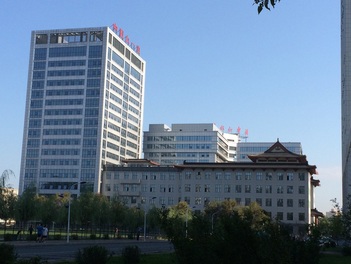
My first few weeks will be spent observing Dr Cheng Wei Ping, a famous specialist in neurological conditions such as stroke and facial paralysis, so common in this northeastern corner of China. Dr Cheng holds consultation every morning and might see 30-40 outpatients a morning, aided by about a dozen student assistants. Twice a week he makes the round of wards in the hospital to check on patients with the most serious and acute conditions.
While strokes require immediate life-saving treatment by western medicine, the chronic long-term effects such as loss of speech or movement are not dealt with as well by western medicine. However, scalp acupuncture has been developed over the past 40 years in China, marrying Chinese needling techniques with Western medical knowledge of the cerebral cortex. Many studies show positive results in treating disorders of the nervous system.
Last week my classmates and I observed inpatients and outpatients receiving acupuncture or herbs, more often in combination. Most of the scalp points were unfamiliar -- we were certainly not taught those points at London South Bank! After some reading we realised that these were not actually acupuncture points but were actually areas of the scalp, and mapped directly over parts of the brain controlling areas like speech, motor, sensory, vertigo and hearing, or tremor control. So needles were inserted into patients' scalps depending on what part of the brain needs to be stimulated. Post-stroke patients who have paralysis or weakness of legs will have their foot motor areas needled and stimulated vigorously.
Lots of research to do this weekend then, so I can understand more of what I will see in Dr Cheng's clinic next week.
 RSS Feed
RSS Feed